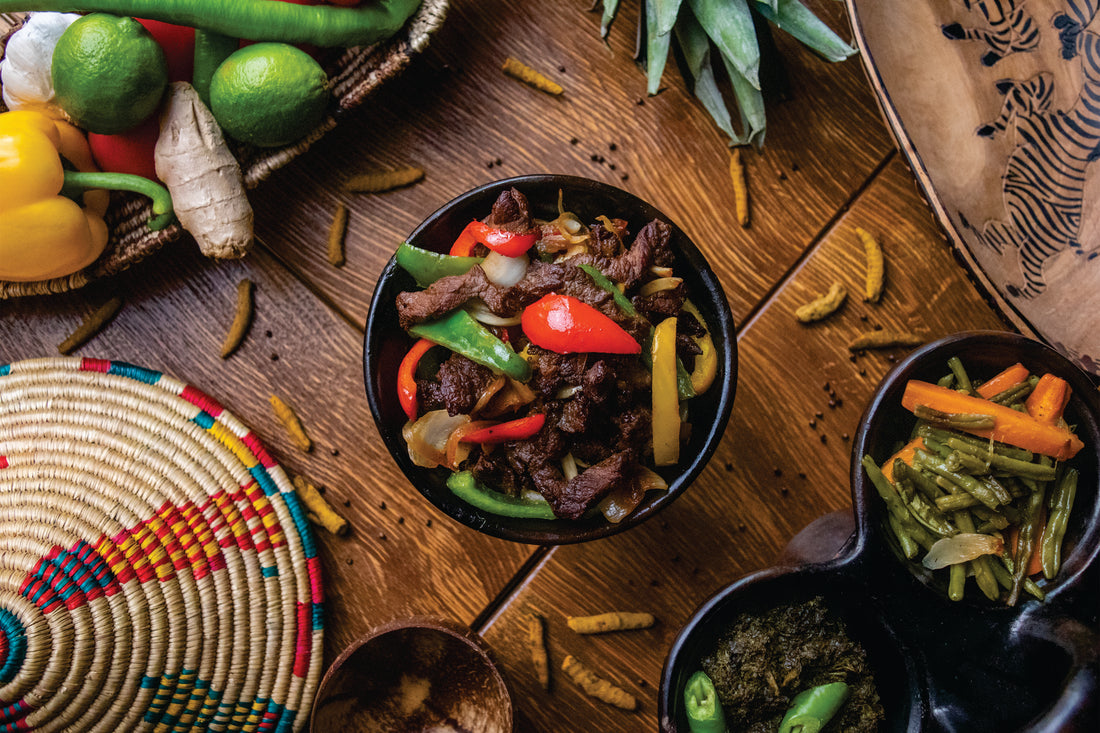
Food: An African Culture
Share
Food is an integral part of the African culture, as it reflects the history, diversity, and values of the people who inhabit this vast continent. Food is not only a source of nourishment, but also a way of expressing identity, celebrating heritage, and fostering community. Here are some of the reasons why food is part of the African culture:
- Food is a medium of storytelling: Many African dishes have stories behind them, such as how they originated, what they symbolize, or who they honor. For example, jollof rice, a popular dish in West Africa, is said to have been created by the Wolof people of Senegal, who cooked rice with fish and tomatoes in one pot. Jollof rice is now a staple dish in many African countries, and each has its own variation and flavor. Food is also a way of passing down oral traditions, such as proverbs, legends, and myths, that teach moral lessons, historical events, or cultural values.
- Food is a manifestation of diversity: Africa is a continent with over 50 countries and thousands of ethnic groups, each with its own cuisine, ingredients, and cooking methods. The diversity of African food reflects the diversity of the land, climate, and resources of the continent, as well as the influences of trade, migration, and colonization. For example, couscous, a dish made of steamed semolina, is widely consumed in North Africa, where wheat is abundant. In contrast, fufu, a dish made of pounded cassava, yam, or plantain, is common in Central and West Africa, where these crops are grown. African food also incorporates elements from other cuisines, such as Arabic, Indian, Portuguese, and French, creating a fusion of flavors and cultures.
- Food is a symbol of celebration: Food is an essential part of many African festivals, ceremonies, and rituals, as it signifies joy, gratitude, and hospitality. Food is often prepared and shared in large quantities, with special dishes reserved for special occasions. For example, during Kwanzaa, a celebration of African heritage, families come together to share a feast that includes traditional dishes like collard greens, black-eyed peas, and sweet potato pie, reinforcing cultural values and community spirit. Food is also a way of honoring ancestors, gods, and spirits, by offering them sacrifices, libations, or prayers.
- Food is a catalyst for community: Food is a social activity in many African cultures, as it brings people together to share, bond, and communicate. Food is often eaten with the hands from a communal plate or bowl, creating a sense of intimacy and connection. Food is also a way of showing respect, generosity, and hospitality, by inviting guests, serving elders, or giving gifts. Food is also a means of resolving conflicts, forging alliances, or expressing solidarity, by exchanging food, sharing meals, or making peace offerings.
Food is part of the African culture, as it showcases, the richness, diversity, and vibrancy of the continent and its people. Food is more than just a physical necessity, it is a spiritual, emotional, and social experience that connects Africans to their past, present, and future.
To order groceries for cooking your favorite African dish, simply click on "SHOP NOW".